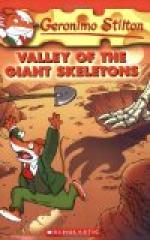“You bet!” said Henry earnestly.
And it was even so. The entire council was present with the exception of Thatcher, who was home ill. His running mate Yates was heartily in favour of doing all and sundry of those things which would aid and encourage the building of the much-to-be-desired railroad and offered no objection to the motion to grant a sixty-day temporary franchise. However, he always played ball with the absent Thatcher and he was fairly well acquainted with his other colleagues on the council; where they were concerned he was as suspicious as a rattlesnake in August—in consequence of which he considered it policy to play safe pending Thatcher’s recovery. Rising in his place, he pointed out to the board the fact that many prominent citizens who yearned for such a road as the N. C. O. had warned him of the danger of lending official aid and comfort to a passel of professional promoters and fly-by-nights; that after all, the N. C. O. might merely be the stalking-horse to a real-estate boom planned to unload the undesirable timber holdings of the Trinidad Redwood Lumber Company, in which event it might be well for the council to proceed with caution. It was Mr. Yates’ opinion that for the present a temporary franchise for thirty days only should be given; if during that thirty days the N. C. O. exhibited indubitable signs of activity, he would gladly vote for a thirty-day extension to enable the matter of a permanent franchise to be taken up in regular order.
This amendment to the original motion met with the unqualified approval of the Mayor, as he was careful to announce for the benefit of the other members of the Solid Four. The fact of the matter was, however, that he was afraid to oppose Yates in such a simple matter through fear that Yates might grow cantankerous and carry his troubles to the Sequoia Sentinel—a base trick he had been known to do in the past. After explaining the advisability of keeping secret for the present the fact that a thirty-day franchise had been granted, His Honour, with the consent of the maker of the original motion and the second thereof, submitted the amended motion to a vote, which was carried unanimously.
At eleven-thirty Thursday morning, therefore, young Henry Poundstone, having worked the greater part of the previous night preparing the deeds, delivered both deeds and franchise to Buck Ogilvy at the latter’s hotel. It was with difficulty that the latter could conceal his tremendous amazement when Henry casually handed him the franchise. True, he had slipped that fake telegram among the contracts as bait for Henry and his father, but in his wildest flights of fancy had not looked for them to swallow hook, line, and sinker. His fondest hope, at the time he conceived the brilliant idea, was that Henry would show the telegram to his father and thus inculcate in the old gentleman a friendly feeling toward the N. C. O. not unmixed with pleasurable anticipations of the day when Henry Poundstone, Junior, should be one of the most highly prized members of the legal staff of a public-service corporation.




